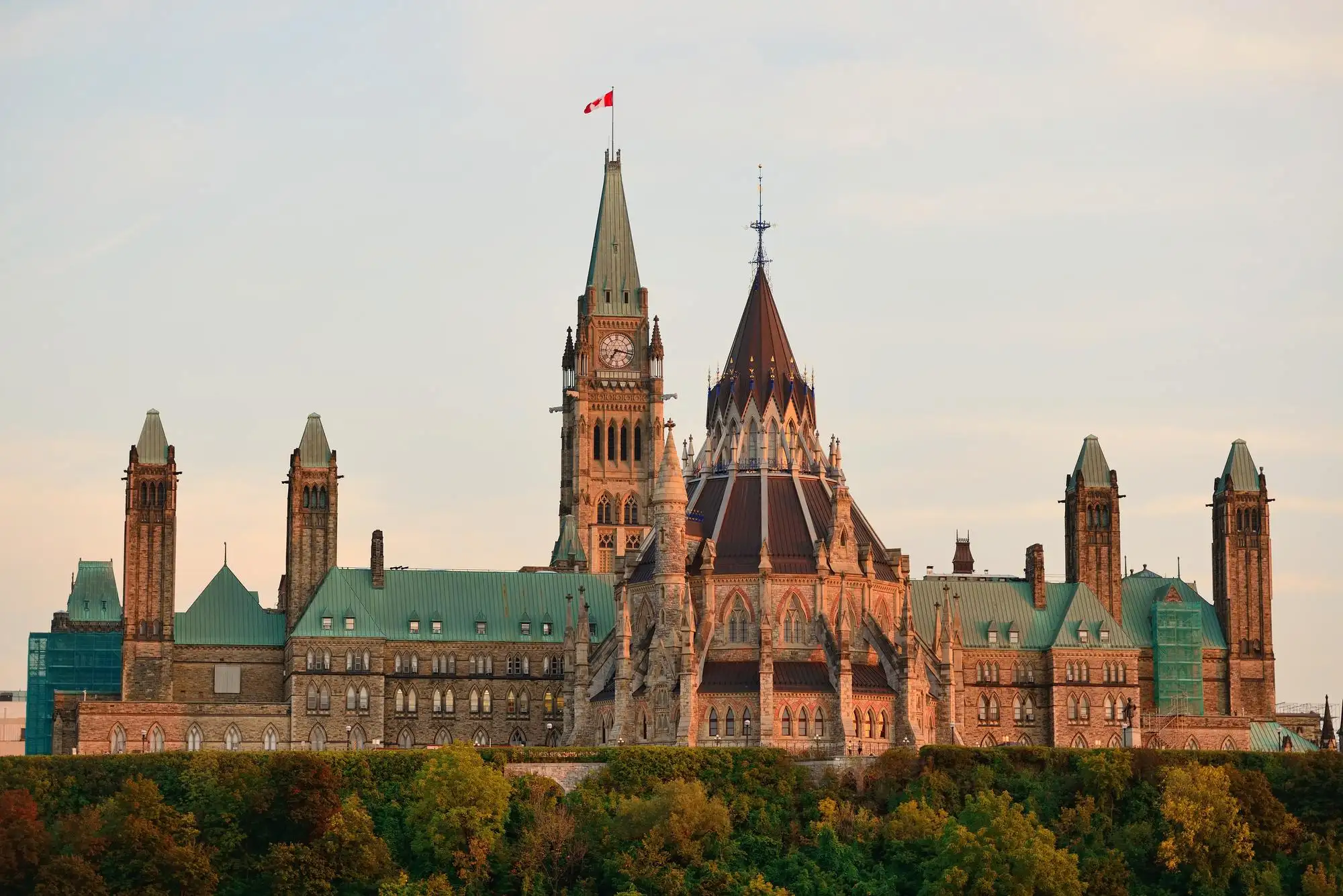The below highlights some of the tax measures proposed by the Conservative Party of Canada for the 2021 Canadian federal election that will be held on September 20, 2021.
The purpose of the below article is to summarize and outline the different tax measures published by the political parties in their election platforms in an impartial manner. The views and measures expressed herein are those of the Conservative Party of Canada, they do not necessarily represent our views.
Tax Measures For Businesses
Canada Job Surge Plan to Subsidize 50% of New Hire Wages
Canada’s Conservatives propose to launch the Canada Job Surge Plan – paying up to 50% of the salary of net new hires for six months following the end of CEWS.
The government will pay at least 25% of the salary of a net new hire, with the subsidy increasing up to a maximum of 50% based on how long the new hire has been unemployed.
The salary maximum will be the same as for CEWS (which is $1,129 per month).
Canada Investment Accelerator Tax Credit for Capital Investments
Companies spending money and creating jobs will receive a 5% investment tax credit for any capital investment made in 2022 and 2023, with the first $25,000 to be refundable for small businesses.
Rebuild Main Street Tax Credit to Encourage Investment in Small Businesses
Provide a 25% tax credit on amounts of up to $100,000 that Canadians personally invest in a small business over the next two years to get money flowing into main street businesses and create jobs.
The policy objective here is to encourage middle-class investors to invest in small businesses while ensuring that those who want to open new stores, restaurants, and other small businesses to get Canadians back to work can get the investment they need.
$200,000 Main Street Business Loan
Provide loans of up to $200,000 to help small and medium businesses in hospitality, retail, and tourism get back on their feet, with up to 25% forgiven based on revenue loss.
The loan will have similar terms to the Canada Emergency Business Account (CEBA) loan.
The actual amount of the loan will be based on 4 months of pre-pandemic revenue up to a maximum of $200,000
Dine and Discover Program: 50% Rebate on Dine-In
Provide a 50% rebate for food and non-alcoholic drinks purchased for dine-in from Monday to Wednesday for one month once it is safe to do so, pumping nearly $1 billion into this sector.
Double the Apprenticeship Job Creation Tax Credit
The Apprenticeship Job Creation Tax Credit (AJCTC) is a non-refundable tax credit equal to 10% of the eligible salaries and wages payable to eligible apprentices. The maximum credit an employer can claim is $2,000 per year for each eligible apprentice.
The conservatives propose to double the Apprenticeship Job Creation Tax Credit for the next three years.
Tax Reform and Reforming the Canada Revenue Agency to Improve Treatment of Middle-Class Canadians and Small Business
The Conservatives propose the following measures:
- Measure and report on the tax gap, in detail, by type of taxation and reason for the shortfall so that CRA can allocate resources where the problems exist;
- Launch a comprehensive review of Canada’s tax system to improve competitiveness, bring down tax rates and simplify the rules.
- Revise CRA’s penalties so that first-time problems or errors receive only minor fines, with increasing severity for repeat offenders;
- Create a “welcome to CRA” program and materials for new small businesses; and
- Allow businesses with less than $60,000 in revenues to use simple cash accounting.
Tax Foreign Tech Companies
Making foreign tech companies pay a digital services tax representing 3% of the gross revenue in Canada if they don’t already pay corporate income tax in Canada.
Cut Taxes on Patent Income by Half
The Conservatives propose to cut the tax rate in half on income earned from patents on innovative products developed in Canada.
Subsidizing Patent Costs
Conservatives also propose to cover up to $10,000 of the administrative and legal costs of each of the first five patents filed by any Canadian small or medium-sized business.
Streamline and Accelerate The SR&ED Program
The Conservatives state that the current SR&ED Program is an administrative burden and propose the following measures to combat this:
- Move administration from CRA to Innovation, Science and Economic Development Canada (ISED) and have the program administered by the same group that administers the Industrial Research Assistance Program (IRAP) program.
- Allow ISED to issue a certificate of allowable deductions, which would then be accepted by CRA, saving significant compliance paperwork and allowing innovators to focus on innovating instead of filling out forms; and
- Make it easier for software development to qualify for SR&ED.
Moreover, the Conservatives want these programs to benefit Canada and Canadian small businesses instead of foreign multinational corporations. They propose the following to achieve this:
- Applicants must demonstrate that intellectual property, production, ownership, and profits are likely to stay in Canada;
- Prohibit foreign state-owned entities or those with ties to foreign militaries from receiving funding;
- All intellectual property developed with the support of the Canadian government must be held by a Canadian entity, and that recipients agree to pay back the subsidy if they sell the IP to a foreign buyer;
- Ending the payment of Canadian tax dollars to large foreign tech companies; and
- Put any money saved by no longer subsidizing foreign multinationals into increasing SR&ED generosity for Canadian small businesses.
Major Tax Incentives for Start-Up Companies
The Conservatives propose the following:
- The Conservatives propose introducing the use of flow-through shares for tech companies to help these companies get financing. This is based on a similar model used for mining financing, which helps to avoid the cost and complexity of listing on an exchange.
- The Conservatives also propose to exempt Canadian-controlled start-ups headquartered and with at least 2/3 of their employees in Canada from the current plan to tax stock options.
Tax Credit for Buying From Canadian Start-Ups
This credit will encourage established Canadian companies to become the first customers for Canadian innovative companies.
Employee Ownership Trusts to Incentivize Business Owners to Sell Their Business to Employees
To encourage Canadian ownership of businesses and to help current business owners retire, Conservatives propose to increase employee ownership of Canadian companies by establishing Employee Ownership Trusts, which provide a tax advantage for company owners to sell to their employees. This will take the form of a reduction in capital gains tax when the owner sells to a trust owned by the employees, enabling ownership to transfer to the people who have partnered in building the business.
Maintain Bill C-208 to Reduce Taxes on Transitioning Family Businesses to Next Generation
The Conservatives state that the Liberals defied Parliament by delaying the implementation of Bill C-208, and clearly plan to repeal it if they win a majority. The Conservatives propose to ensure that the sale of a family farm to a family member is not taxed at a higher rate than a sale to a stranger. There are no comments about whether the measures on Bill C-208 will also apply to non-farm businesses.
Modernize the General Anti-Avoidance Tax Rule
Modernize the general anti-avoidance rule regime in order to focus on economic substance and restrict the ability of federally regulated entities, including financial institutions such as banks and insurance companies, to use tiered structures as a form of corporate tax planning that flows Canadian-derived profit through entities in low-tax jurisdictions in order to reduce taxes back in Canada.
Tax Measures for Individuals and Families
Tax Credit to Take a Vacation in Canada
A 15% tax credit for vacation expenses of up to $1,000 per person for Canadians to vacation in Canada in 2022.
Child Care Tax Credit to Give More Child Care Tax Benefits to Families
Conservatives propose to convert the Child Care Expense deduction into a refundable tax credit covering up to 75% of the cost of childcare for lower-income families. This measure intends to increase the support that lower-income families receive by thousands of dollars per year and provide more assistance to almost all families.
The Conservatives also propose to pay out the deduction over the course of the year so that families do not have to pay the cost of childcare and then get the money back later. The Conservatives state that a family with an income of $120,000 can today claim a maximum of $1,640. Under their plan they will receive up to $4,560.
Canada Child Benefit to Start During Pregnancy
To help with first-time costs for cribs, clothes, car seats and a range of other items needed for the family, the Conservatives propose to expand the Canada Child Benefit by allowing benefits to begin at the 7th month of pregnancy rather than at childbirth.
Double the Canada Workers Benefit
The Canada workers benefit (CWB) is a refundable tax credit to help individuals and families who are working and earning a low income.
Double the Canada Workers Benefit up to a maximum of $2,800 for individuals or $5,000 for families and pay it as a quarterly direct deposit rather than a tax refund at year-end. The Conservatives also propose to double the disability supplement from $713 to $1,500.
Safety Net for Gig Economy Workers to Mirror CPP/EI Regime
The Conservatives will require gig economy companies to make contributions equivalent to CPP and EI premiums into a new, portable Employee Savings Account every time they pay their workers. The money will grow tax-free and can be withdrawn by the worker when needed.
Measures to Combat Hot Housing Market
Defer Capital Gains Tax When Selling A Rental Property
Encouraging Canadians to invest in rental housing by extending the ability to defer capital gains tax when selling a rental property and reinvesting in rental housing, something that is currently excluded; and Exploring converting unneeded office space to housing.
Tax Incentives to Donate Land for Affordable Housing
Creating an incentive for corporations and private landowners to donate property to Land Trusts for the development of affordable housing. The Conservatives state that the incentive will mirror that which exists for donating land to ecological reserves.
Ban Foreign Investment for 2 Years
The Conservatives plan to ban foreign investors not living in or moving to Canada from buying homes here for a two year period after which it will be reviewed. Foreign investment in purpose-build rental housing that is affordable to Canadians will be encouraged.
Relax Mortgage Stress Tests
The Conservatives plan to remove the requirement to conduct a stress test when a homeowner renews a mortgage with another lender instead of only when staying with their current lender. They also plan to fix mortgage stress test to stop discriminating against small business owners, contractors and other non-permanent employees including casual workers.
Longer-Term Mortgages
The Conservatives plan to encourage a new market in seven- to ten-year mortgages to provide stability both for first-time home buyers and lenders, opening another secure path to homeownership for Canadians, and reducing the need for mortgage stress tests
Maintain Principal Residence Exemption
The Conservatives state that they will never tax Canadians’ capital gains on the sale of their principal residence.
Increase Housing Supply with Better Infrastructure
Build public transit infrastructure that connects homes and jobs by bringing public transit to where people are buying homes and require municipalities receiving federal funding for public transit to increase density near the funded transit.
We’re happy to help
If you have any questions about our article, please feel free to schedule a free consultation with one of our team members.


